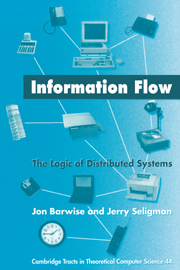Preface
Published online by Cambridge University Press: 05 November 2011
Summary
Information and talk of information is everywhere nowadays. Computers are thought of as information technology. Each living thing has a structure determined by information encoded in its DNA. Governments and companies spend vast fortunes to acquire information. People go to prison for the illicit use of information. In spite of all this, there is no accepted science of information. What is information? How is it possible for one thing to carry information about another? This book proposes answers to these questions.
But why does information matter, why is it so important? An obvious answer motivates the direction our theory takes. Living creatures rely on the regularity of their environment for almost everything they do. Successful perception, locomotion, reasoning, and planning all depend on the existence of a stable relationship between the agents and the world around them, near and far. The importance of regularity underlies the view of agents as information processors. The ability to gather information about parts of the world, often remote in time and space, and to use that information to plan and act successfully, depends on the existence of regularities. If the world were a completely chaotic, unpredictable affair, there would be no information to process.
Still, the place of information in the natural world of biological and physical systems is far from clear. A major problem is the lack of a general theory of regularity.
- Type
- Chapter
- Information
- Information FlowThe Logic of Distributed Systems, pp. xi - xviPublisher: Cambridge University PressPrint publication year: 1997



